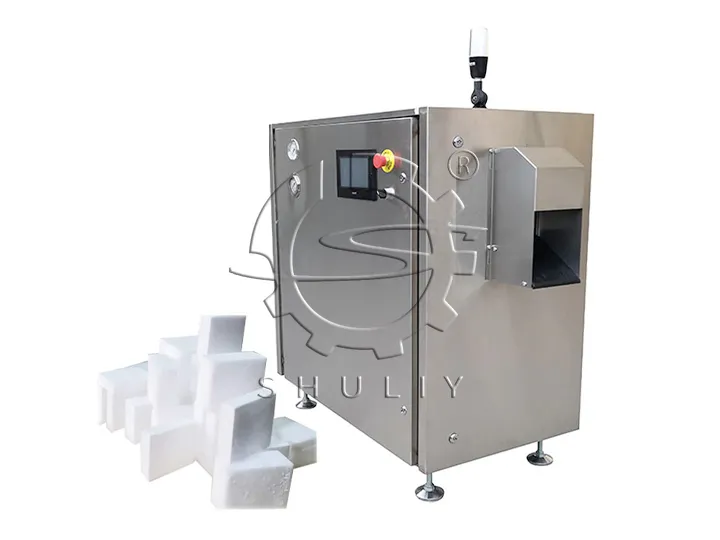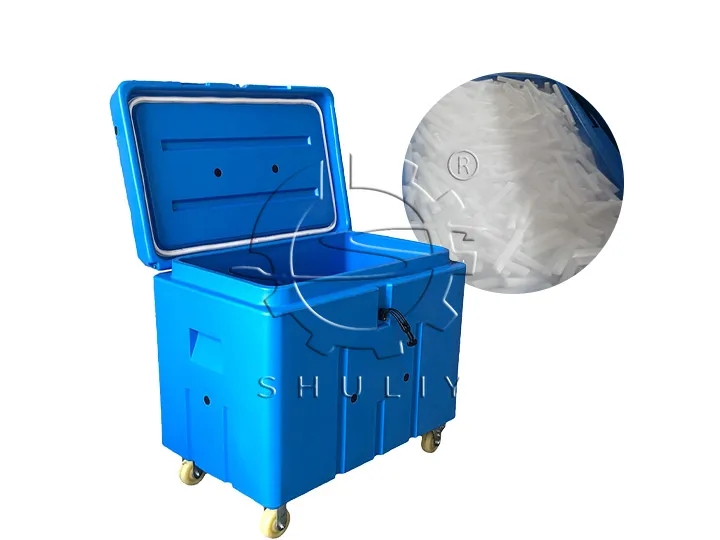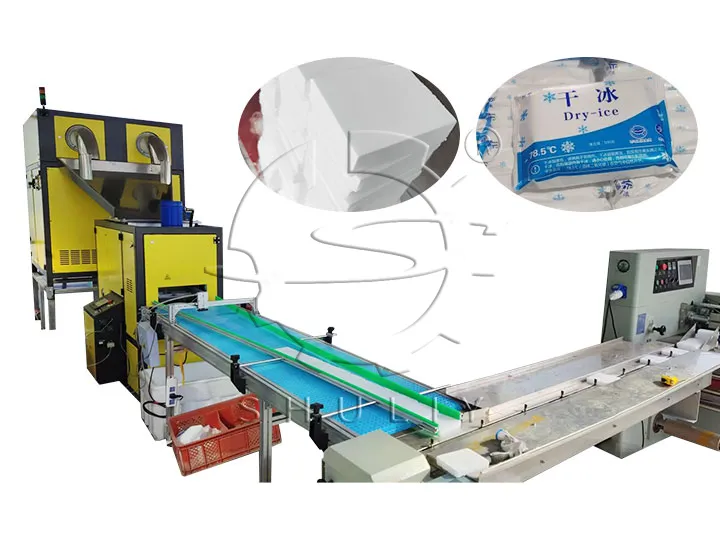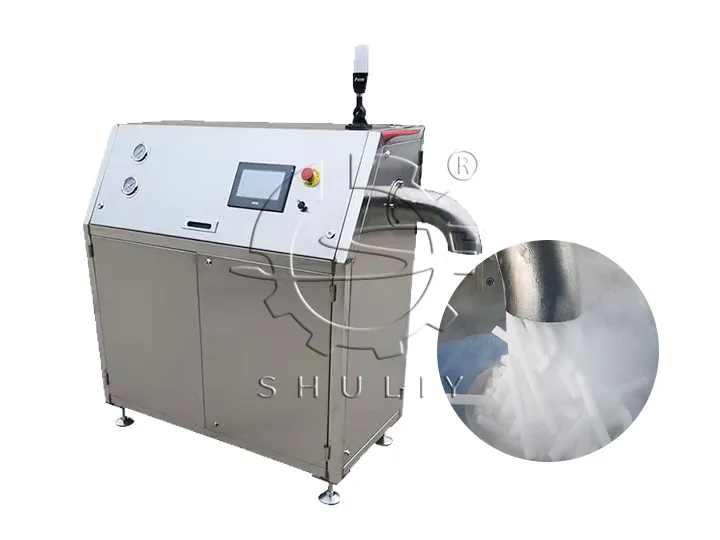最良の産業用ドライアイスマシンにおいて注目すべき点(購入者ガイド)
適切な機器を選ぶことは、あらゆるビジネスにとって重要な投資です。産業用ドライアイスマシンの選択も例外ではありません。市場にはさまざまなモデルと技術があり、真に bottom line に影響を与える要素を特定するのは困難です。本ガイドは表面的な仕様を超え、良いドライアイスマシンとは何か、運用のための信頼性が高く、効率的な資産をどう選ぶかを説明します。
最適な産業用ドライアイスマシンを見つけることは、機能の多さを探すことではなく、信頼性と投資対効果を保証する適切な機能を見つけることです。このガイドは、表面的な仕様を超えて、良いドライアイスマシンとは何か、運用において信頼性と効率性の高い資産をどう選ぶかを説明します。
信頼性の核:ヘビーデューティー油圧システム
最初に問うべき質問は:油圧ドライアイスプレスはより良いのか?産業用途では答えは明確に“はい”です。他の方法も存在しますが、油圧システムは業界標準として理由があります。
油圧ドライアイスプレスは流体圧を利用して巨大で一貫した力を生成します。これには二つの理由が重要です。
- 密度:高い圧力は高密度のドライアイスブロックを生み出します。密度の高いブロックは昇華(固体から気体への転換)を低いものより遥かに遅くするため、あなたや顧客に長持ちする製品を提供します。これは品質の直接的な指標です。
- 耐久性:産業グレードのドライアイメーカーは何百万もの圧縮サイクルに耐える必要があります。強固な油圧システムは、その種の過酷な作業に対して inherently more durable and reliable であり、機械的代替より故障が少なく保守が少なくて済みます。
運用の頭脳:PLC制御システム
油圧が筋肉であれば、プログラマブルロジックコントローラ(PLC)は頭脳です。これは標準機械と最高級の産業用ドライアイスマシンの間の最も重要な差別化要因の一つです。
基本的な専用コントローラを搭載した機械は避けてください。代わりに、世界的に認識されたブランドを探してください。Siemens PLCを搭載したドライアイスマシンは、いくつかの明確な利点を提供します。
- 精度と一貫性:各サイクルが全く同一になることを保証します。例えば“氷噴霧時間”から圧縮圧力まで、生成される各ブロックが正確な重量とサイズ仕様を満たすことを保証します。この自動制御と手動制御のこのレベルは、専門的用途では譲れません。
- 信頼性:高品質部品を備えたトップクラスのPLC(Schneider接触器、Omronリレーなど)により、電気故障のリスクを劇的に低減します。これは、劣位の機械でよくあるドライアイスマシンの問題の一つです。
- 診断機能:高度なPLCは画面上で診断を提供し、トラブルシューティングを迅速化し、ダウンタイムを最小化します。
profitability を定義する主要な効率指標
機械の性能は出力だけではなく、効率にも依存します。二つの指標が重要です。
ドライアイスマシンの変換率:この指標は、液体CO₂がどれだけ固体のドライアイスに変換されるかを測定します。典型的な比率は約2.2:1から2.5:1です(つまり2.5 kgの液体が1 kgのドライアイスになる)。優れた設計を持つ機械はこの比率を改善し、長期的には原材料コストを直接削減します。潜在的なメーカーに対して機械の変換率を必ず尋ねてください。
ドライアイスブロックのサイズ調整:生産ニーズは変わることがあります。優れた機械は、タッチスクリーンインターフェースを介してブロックのサイズと重量を容易に調整できます。この柔軟性により、複数の機械を用意せずに異なる顧客の注文に対応できます。
パートナーを選ぶ、機械だけでなく
最後に、メーカー自身を考慮します。信頼できるドライアイス機メーカーは単なる機器提供以上のものを提供します。完全なソリューションとサポートを提供します。
- 設置、トレーニング、入手しやすいアフターサポートを提供しますか?
- スペアパーツはすぐ入手できますか?
- 彼らはあなたの全体的なワークフローを理解していますか? 例えば、真のパートナーはアドバイスを提供できます 完全なドライアイスブロック生産ライン, にはCO₂貯蔵タンクおよび下流の取り扱い、梱包が含まれます。
- 必要なアクセサリーを提供していますか? 最高品質のドライアイスは、あまりにも早く昇華すると無意味です。専門的な取り扱いと適切な管理を行うことで、 絶縁されたドライアイス貯蔵容器 あなたの製品を維持するために不可欠です。
これらの核となる要素—頑丈な油圧システム、世界クラスのPLC、測定可能な効率、そしてサポートするメーカー—に焦点を当てることで、信頼性と収益性の高い産業用ドライアイスブロック機を、今後何年にもわたりビジネスの一部として自信をもって選択できます。industrial dry ice block machine




